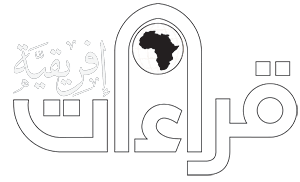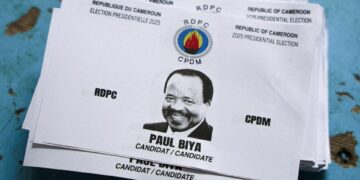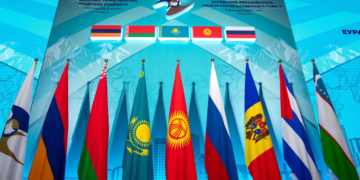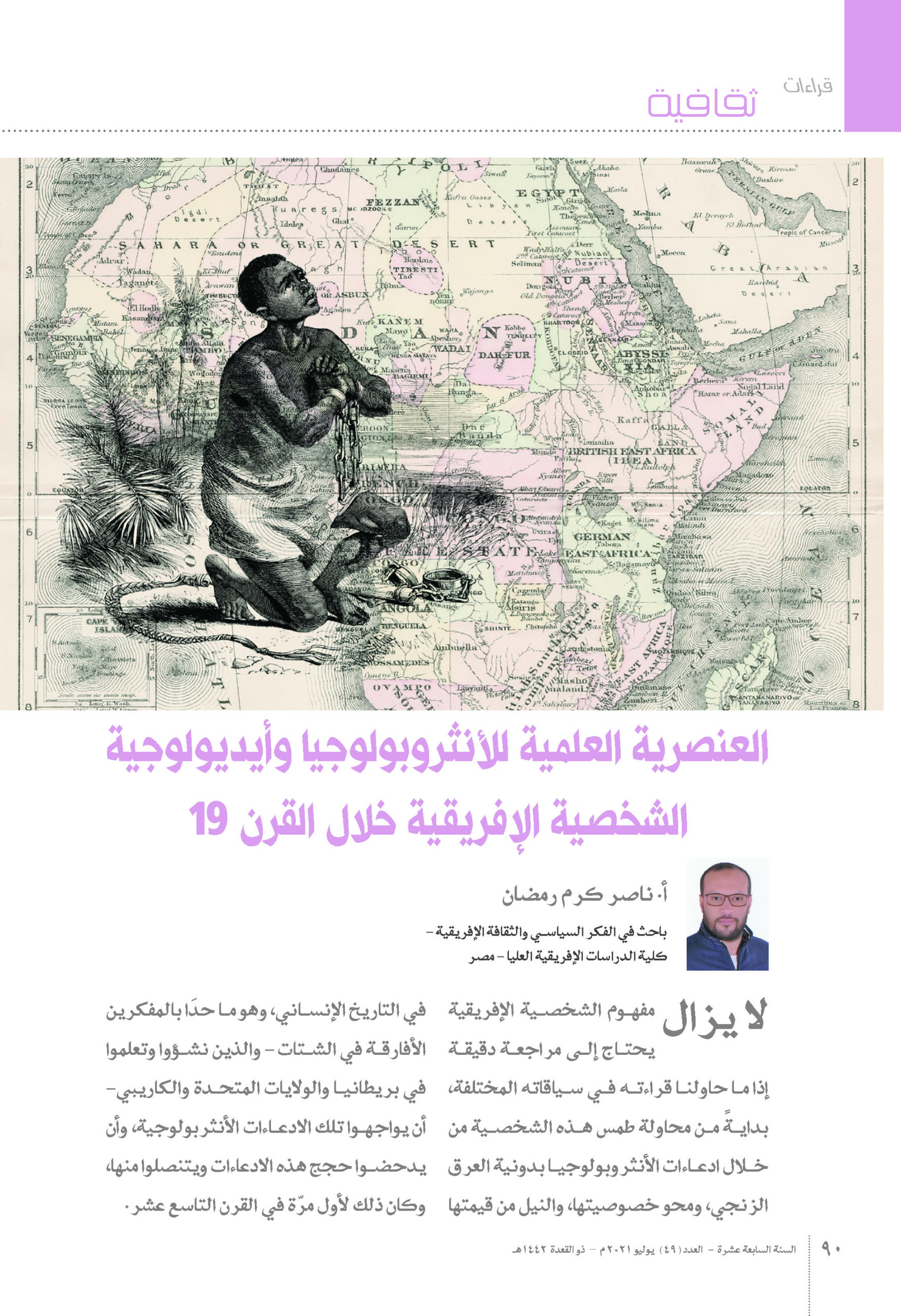Abstract: This study attempts to present the concept of the African personality in its various contexts, starting with the anthropology allegations about inferiority of the Negro race, its obliterate, and the undermining of its value in human history, through the African intellectuals in the diaspora who faced these anthropological claims, and those who tried to refute the arguments of these allegations and disavow them, and this was for the first time in the nineteenth century. It also seeks to shed light on the most important intellectual endeavors of anthropologists in the nineteenth century and earlier in order to establish a hierarchical structure of races through complex evolutionary stages, and in contrast, attempts were made by some African intellectuals to reject them, as he presented an integrated ethnic theory, which represents the basis to understand what is known as the African Personality and extent of reflect that African thought later. The most important of these African attempts was led by Dr. Edward Blyden (1932-1912), who used historical narratives to show the human dignity of Africans, to be later the first African intellectual to use the term African personality. He based his philosophy on the African personality on five main axes: the historical achievements of the Negro race, the restoration of the greatness of Africa; Africa's possession of distinctive features of the continent, such as collective action and the distribution of production according to the needs of the people, and that the extended African family and polygamy are the best solution to social problems; Africans have inherent capabilities that distinguish them from all other peoples, all of which constitute the African Personality. Blyden criticized the foreign missionaries, accusing them of seeking to impose a European character on Africans, and urged to establish an independent and non-sectarian African church. He believed that Islam helped develop the African Personality, as well as cleanse and purify African customs from its pagan elements, and explained that the Islamic religion rejected racism, called for equality, and maintain most African customs and institutions. Moreover, freedom of belief was guaranteed, and blacks were allowed to assume the reins of power and leadership. The researcher believes the immediate challenge is the challenge of creativity; which cultured Africans and African governments must confront; The real objective of a study "the African personality" is; It is the creation and affirmation of a distinctive African identity through creativity in all fields; In language, literature, art, and philosophy. This is to enhance our sense of pride and restore our self-esteem and dignity in ways that focus on our Africanism and Personality.
الملخص: تحاول هذه الدراسة تقديم مفهوم الشخصية الإفريقية في سياقاته المختلفة، بداية من طرح ادعاءات الأنثروبولوجيا بدونية العرق الزنجي، ومحو خصوصيتها، والنيل من قيمتها في التاريخ الإنساني، مرورًا بالمفكرين الأفارقة في الشتات الذين واجهوا تلك الادعاءات الأنثربولوجية، والذين حاولوا أن يدحضوا حجج هذه الادعاءات ويتنصلوا منها، وكان ذلك لأول مرة في القرن التاسع عشر. كما يسعي لإلقاء الضوء على أهم المساعي الفكرية لعلماء الأنثروبولوجيا في القرن التاسع عشر وما قبله من أجل وضع تسلسلية هرمية للأعراق من خلال مراحل تطورية معقدة، وفي مقابل ذلك جرت عدة محاولات من جانب بعض مفكري هذه الحقبة من ذوي الأصول الإفريقية لرفضها، فقام بتقديم نظرية عرقية متكاملة، تمثل أساساً لفهم ما يعرف بالشخصية الإفريقية. ومدى انعكاس ذلك على الفكر الإفريقي فيما بعد. كانت أهم هذه المحاولات الإفريقية يقودها الدكتور "إدوارد بلايدن" (1932-1912م) والذي استخدم الروايات التاريخية لإظهار الكرامة الإنسانية للأفارقة، ليكون فيما بعد أول مفكر إفريقي يستخدم مصطلح "الشخصية الأفريقية". استند في فلسفته للشخصية الإفريقية إلى خمس محاور رئيسية وهي: الانجازات التاريخية للعرق الزنجي، استعادة عظمة إفريقيا؛ امتلاك إفريقيا لسمات مميزة للقارة، مثل العمل الجماعي وتوزيع الإنتاج حسب احتياجات الشعب، وأن الأسرة الإفريقية الممتدة وتعدد الزوجات أفضل حل للمشاكل الاجتماعية؛ وأن الأفارقة يتمتعون بقدرات متأصلة تميزهم عن جميع الشعوب الأخرى، وجميعها تشكل "الشخصية الإفريقية". وانتقد "بلايدن" البعثات التنصيرية الأجنبية، واتهمها بأنها تسعى إلى فرض الطابع الاوربي على الأفارقة، وحث "بلايدن" على إنشاء كنيسة إفريقية مستقلة وغير طائفية. ورأى أن الدين الإسلامي قد ساعد في تنمية الشخصية الإفريقية، وكذلك تطهير وتنقية العادات الإفريقية من عناصرها الوثنية، وأوضح أن الدين الإسلامي رفض العنصرية، ودعا إلى المساواة، وأبقى على معظم العادات والمؤسسات الإفريقية، فاستوعب الكُل ووحدهم من خلال تجاوز الانقسامات القبلية. علاوة على ذلك ضمن حرية العقيدة، وسمح للسود بتولي مقاليد السلطة والقيادة. ويرى الباحث أن التحدى القادم هو تحدى الإبداع؛ والذي يجب على الأفارقة المتعلمين والحكومات الإفريقية مواجهته؛ فالهدف الحقيقي من دراسة "الشخصية الإفريقية"؛ هو إنشاء وتأكيد هوية إفريقية مميزة من خلال الإبداع في جميع المجالات؛ في اللغة، والأدب، والفن، والفلسفة. وذلك من أجل تعزيز شعورنا بالفخر واستعادة احترامنا لذاتنا وكرامتنا بطرق تركز على إفريقيتنا وشخصيتنا.







































